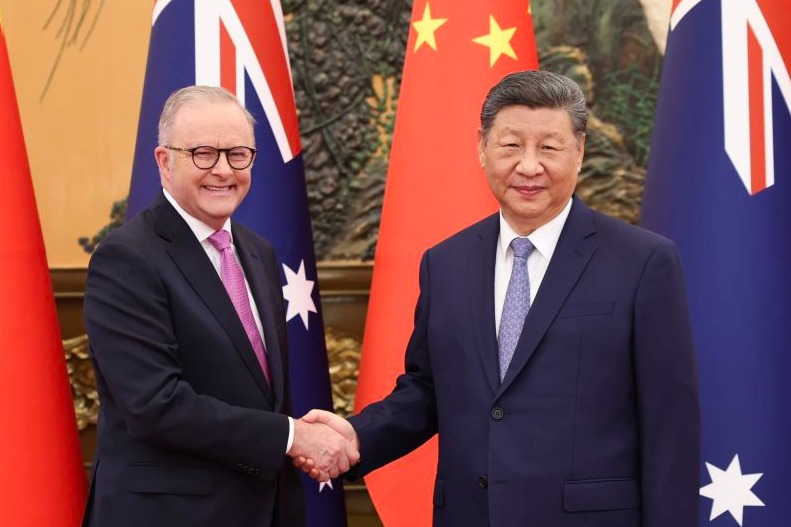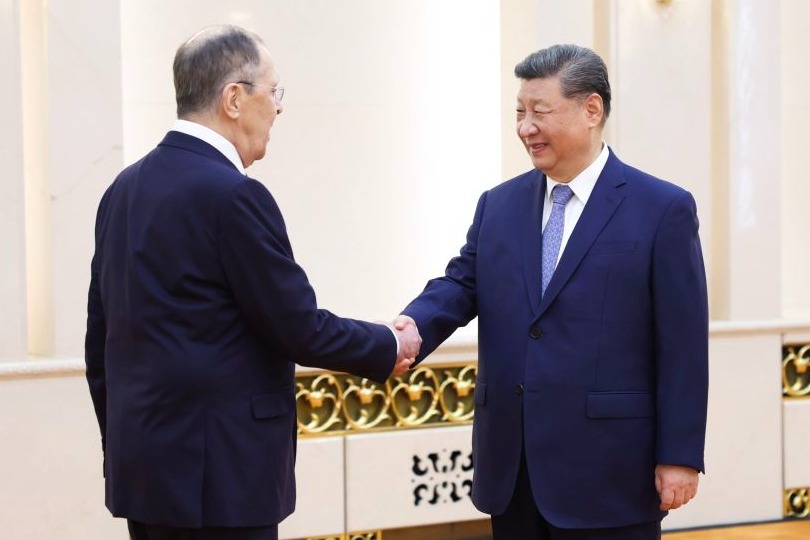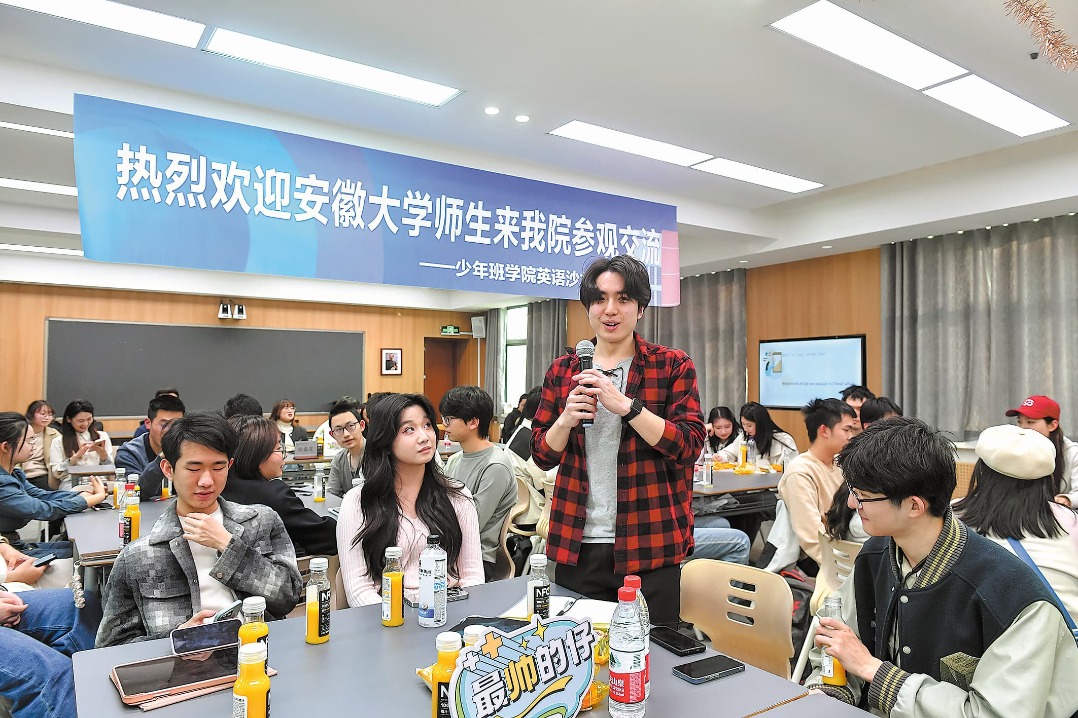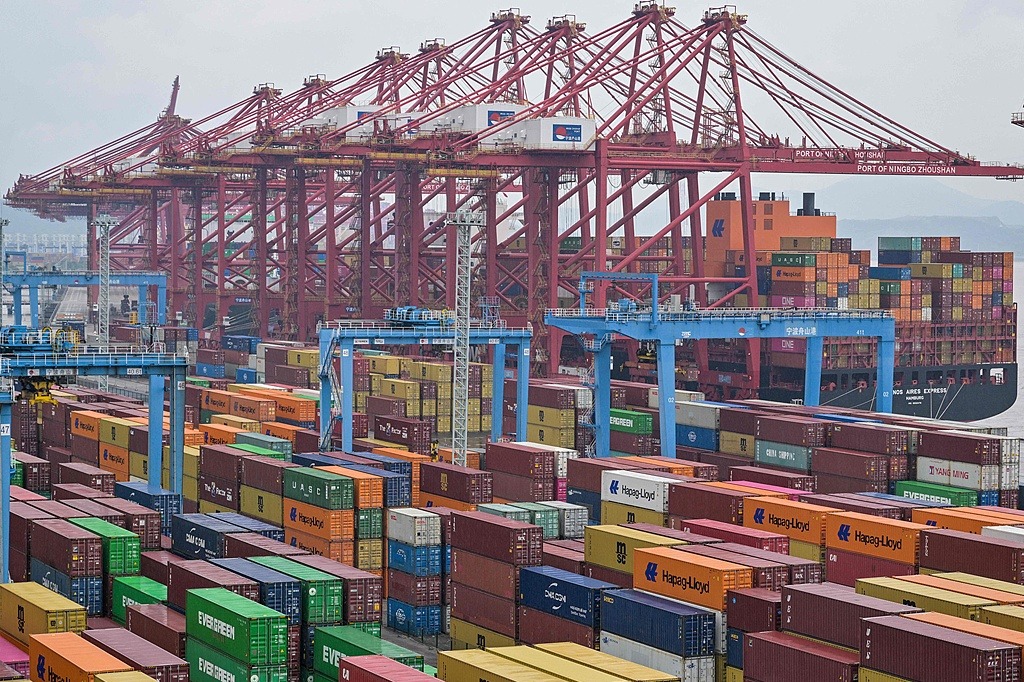Printing revolution

|
|
The old Chinese song Wild Lily Also Has Its Spring perfectly describes the situation of China's private publishers. As the lyrics say, it's not only things that are carefully nurtured that can bloom.
It was common parlance among publishers 10 years ago to describe the private publishing industry system as not having much of a future.
However, now, according to data from the Chinese Academy of Social Sciences, more than 90 percent of best-sellers are produced by private publishers. Last year, China's book market - excluding text books - provided about 300,000 works, with one-third coming from private publishers, People's Daily reported.
Some private booksellers have become millionaires over the years.
Shen Haobo, president of China's biggest private publisher, Beijing Motie Book Ltd, which sold 10 million copies of Stories of the Ming Dynasty over the past two years, was a pioneer poet 10 years ago. His company generated sales revenues of about 500 million yuan (56.77 million euros) last year.
Another legendary figure, Liaoning Wanrong Book Ltd's manager Lu Jinbo, was a top writer, penning works under the pseudonym Li Xunhuan in 2000.
Lu's company created the Chinese writers' Real Madrid Club, signing top writers, such as Han Han, Wang Shuo, Murong Xuecun, Shi Kang and Annie Baby, all of whom guarantee good sales.
The past two years have seen a turning point for private publishers.
Two official guidelines issued by the General Administration of Press and Publication (GAPP), China's publishing industry regulatory body, in January 2010 and April 2009, encourage private enterprises to play a bigger role in publishing.
Private enterprises are allowed to publish books on science, economics, arts and children's books in cooperation with or, as a unit of, State-run publishers.
The country wants six or seven press and publishing giants with annual revenues of more than 10 billion yuan in three to five years, GAPP's guidelines say.
"This is the right direction for China's publishing industry. The participation of private publishers will be a strong driver for the industry's revolution," says Zhou Xuelin, president of privately owned China Europe International Business School Publishing Group in Shanghai.
Before these changes, private publishers had to practice under "gray areas" and faced lots of limitations on what they could and could not bring to the market. Laws governing book publishing were unclear.
More than 10 years ago, private publishers were referred to as "bookmongers" because they earned their profits from selling books wholesale. As they became bigger, they began to encroach on territory previously occupied by State-owned publishing houses.
Every book published is given what is called a serial code. State-owned publishers receive this free of charge but private publishers were obliged to pay State-owned publishers 20,000 yuan for each one a decade ago, although the practice was not, strictly speaking, legal. The price now is reported to be 50,000 yuan.
Private publishers now provide content, book cover designs and promotional activity, gradually taking on the role of book contractors.
"Now, under the new system, private publishers are fully legitimate and can play a more active role. At the same time, their operations are under government regulation and management, which is good for the entire publishing industry," says Zhou.
China promised the World Trade Organization it would open its publishing market further when it joined global trade body in 2001.
The first joint venture between a State-owned and a private publisher was between Hubei Changjiang Press Group and Jinli Partnership in 2003.
Venture capital then moved into the fledging industry.
In 2008, Motie received 50 million yuan in venture capital from a source it did not disclose. In August this year, a new round of 100 million yuan by CDH Investments was injected into the company, indicating confidence in private publishing, analysts say.
However, the private publishing industry is still small relative to the State-owned sector. An article in the Financial Times written by Shen of Motie says the company's annual sales revenue of 500 million yuan represents just 1.03 percent of the country's total book sales.
Nonetheless, private publishers outperform State-owned publishers in producing best-selling titles, although they have a smaller share in the educational market.
"Compared with State-owned publishers, private companies are not competitive in terms of branding and asset structure. But we can see they have been growing at a very fast pace over recent years," says Zhou Zhonghua, general manager of Huazhang Publishing Co, a joint venture between China Machine Press and the US-based Multi-Lingua Publishing International Inc.
"Because of their flexibility, private publishers can always spot business opportunities in the market quickly and precisely, a skill that easily catches the eyes of capital investors," says Zhou.
The modern trend is toward cooperation between private publishers and State-owned publishers over writing projects, authors and capital, he adds.
Dai Zhiyong, a commentator at Southern Weekend, a Guangzhou-based weekly newspaper, says there are three routes for the regulatory body and all private publishers to consider during their development.
The first is to experiment. Select several private publishing houses according to subcategory or groups and give State-owned publishers equal treatment. This route can be supervised and it can be used to gradually accumulate managerial experience.
The second is for GAPP to encourage local creativity, incorporating private publishers into specially designated creative industry parks.
The third has been stated in official industry guidelines. Support should be given to the equal and cooperative operation of private resources and State industry. The government should not micromanage the way they cooperate, what they cooperate on or the ownership structure. If there are too many constraints, it is destined to be an "odd-looking dance".
"No matter what route, the ceiling for the kind of content that can be produced should be greatly raised in this age of the Internet. The system is already being innovated and a larger dance floor is in order," says Dai.
There are some who believe all books in the future will in fact be computers with hypertext links, video and complex graphic interfaces.
Zhang Yiwu, an expert in the publishing industry from Peking University, believes speed, agility and creativity are key advantages for private publishers.
"The next step for them is to look for uniqueness and different personalities," Zhang says.
Li Yueqing, founder and general manager of Shanghai Wingsbook Co Ltd, has the same view. "Being more professional and specific in their choice of sector is of great significance for private publishers," he says.
Most often, when one company has established a strong brand in a specific subject, it is likely to attract related resources.
As a market leader, Motie has followed this route. After its Ming Dynasty series succeeded, the company followed up with several other history trade books to strengthen its dominance in the field.
Another example is Beijing Fonghong Media Co Ltd, which put its emphasis on healthcare books after first publishing an extremely popular family medical book - You Can Be Better Than Doctors.
Unlike the practice at Motie of finding relatively unknown writers from Tianya.com, one of the country's most influential social network websites, Wanrong uses already established authors.
Wanrong focuses on appealing to fans of star writers, heavily promoting the books before they arrive on shelves.
Chinese private publishers also learned from the West from such literary sensations as the Harry Potter series, which subsequently became a huge box office success.
One of the hottest novels this year The Story of Du Lala's Promotion, which deals with the issue of workplace social skills, has also been made into a movie, a stage play and a TV series.
Huang Juanqing, president of its publisher Beijing Booky Publishing Inc, says the book was the least influential from a commercial point of view. As a result, the publisher relied on support from other formats, such as the movie to maintain and develop interest from readers in order to "sell more and sell long".
"To develop healthily in the future, private publishers had better begin to cultivate their readers' interests, rather than catering to their interests, in order to stop imitators from developing the brand," says Zhang from Peking University.
Today's Top News
- Urban renewal beyond economic growth
- Xi meets Russian FM in Beijing
- Xi meets heads of foreign delegations attending SCO council of foreign ministers meeting
- Xi addresses Central Urban Work Conference, listing priorities for urban development
- China reports 5.3% GDP growth in H1
- China handles 95 billion parcels in first half of year
































